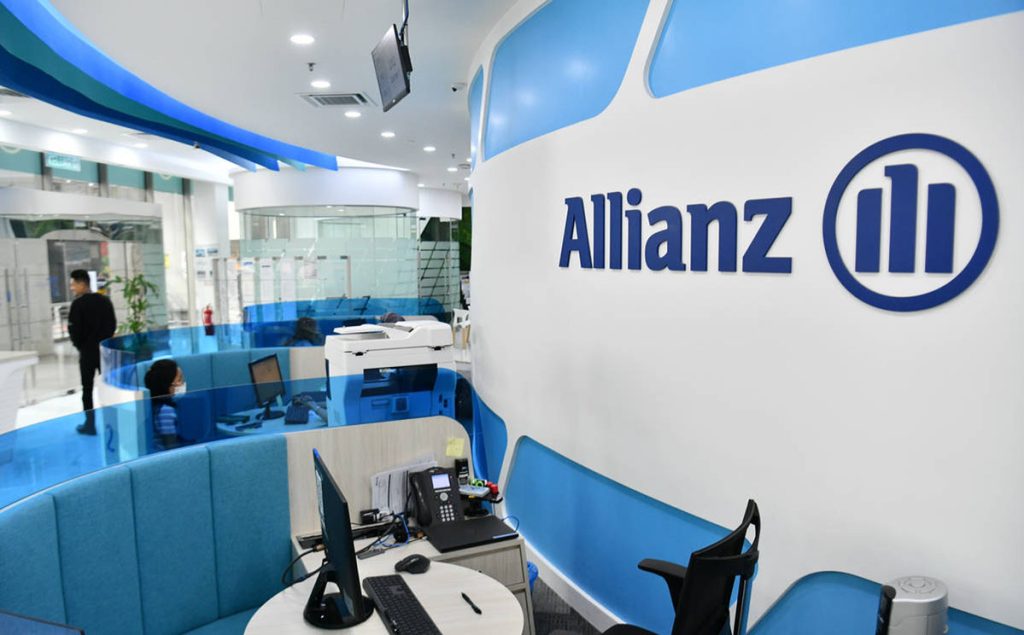Atlanta, a vibrant southern metropolis, attracts thousands of tourists with its rich history, world-class cuisine, modern cityscape, and warm Southern hospitality. However, traveling always comes with uncertainties—whether it’s flight delays, lost luggage, or sudden health issues, any of these can disrupt your travel experience.
To ensure a smooth and worry-free trip to Atlanta, travel insurance is an essential safeguard. It not only helps reduce financial risks caused by unforeseen events but also provides medical support, luggage protection, and flight compensation in emergencies. I will give you a comprehensive introduction to Atlanta travel insurance, including why you need to buy insurance, how to choose the right plan, detailed purchase methods, and emergency response guidelines to ensure your trip is worry-free.
1. Why Do You Need Travel Insurance?
Travel insurance isn’t just for medical emergencies or accidents—it also covers flight cancellations, lost luggage, stolen belongings, and many other travel risks. Here are some key reasons why you should consider purchasing it:
1.1 Medical Coverage
Healthcare in the U.S. is extremely expensive, especially for international travelers without local insurance. Even a simple emergency room visit can cost thousands of dollars. A good travel insurance plan can cover doctor visits, hospital stays, emergency treatment, prescription medication, and even emergency medical evacuation.
1.2 Flight Delays or Cancellations
Hartsfield-Jackson Atlanta International Airport (ATL) is one of the busiest airports in the world. Weather conditions, mechanical failures, or airline scheduling changes can lead to flight delays or cancellations. Travel insurance can provide compensation for additional accommodation, meals, and alternative flight arrangements to minimize disruptions.
1.3 Lost, Damaged, or Delayed Luggage
Checked baggage can be delayed, lost, or damaged during transit. If your travel insurance covers baggage protection, you can receive compensation for emergency necessities or replacement luggage.
1.4 Accidental Injury Insurance
If you experience an accident during your trip—such as a car crash or a fall—travel insurance can provide emergency medical coverage and arrange emergency evacuation if needed. In severe cases, it can also cover repatriation expenses.
1.5 Personal Belongings Protection
If your phone, camera, laptop, or other valuable items are lost or stolen during the trip, travel insurance can offer reimbursement, reducing financial loss.
2. How to Choose the Right Travel Insurance?
When selecting travel insurance, it’s crucial to take into account your travel purpose, trip duration, personal health condition, and specific needs. Different types of travelers require different levels of coverage, and choosing the right plan can save you from unexpected financial burdens in case of emergencies. Below are key factors to consider when purchasing travel insurance:
2.1 Types of Travel Insurance
Travel insurance is typically categorized into several types, depending on the length and frequency of your trips:
• Single-Trip Insurance
Single-trip insurance is ideal for travelers who are planning a one-time journey, whether for business, vacation, or a short-term visit. This type of insurance covers you from the moment you leave for your trip until you return home. Coverage usually includes medical emergencies, trip cancellations, lost baggage, and other unexpected disruptions. The cost of single-trip insurance depends on the destination, trip duration, and coverage level. It’s a great option for occasional travelers who don’t need year-round protection.
• Multi-Trip Insurance (Annual Coverage)
For frequent travelers, an annual travel insurance policy (also known as multi-trip insurance) provides coverage for multiple trips throughout the year. This type of insurance is particularly beneficial for business professionals, digital nomads, or those who frequently visit family abroad. Instead of purchasing a new policy for each trip, multi-trip insurance provides continuous coverage, making it more cost-effective and convenient for those who travel frequently. It typically covers medical expenses, trip cancellations, and lost baggage for each trip taken within the insured period.
• Long-Term Travel Insurance
If you plan to stay in a foreign country for an extended period, such as for study, work, or relocation, long-term travel insurance is an essential consideration. This type of policy often provides comprehensive coverage, including extended medical benefits, repatriation, emergency evacuation, and even routine healthcare in some cases. It’s particularly useful for expatriates, students studying abroad, and remote workers who live in different countries for months or years at a time. Some policies may also include dental care, maternity benefits, and coverage for pre-existing conditions, depending on the provider.
By understanding these different types of travel insurance, you can choose a policy that best fits your specific travel needs and lifestyle.
2.2 Coverage Scope
When evaluating travel insurance plans, it’s important to ensure that your chosen policy includes the following essential protections:
Medical Expenses
Medical costs abroad can be extremely high, especially in the United States, where healthcare is among the most expensive in the world. A good travel insurance plan should cover:
- Hospitalization costs
- Emergency medical care
- Doctor consultations and treatment
- Prescription medications
- Diagnostic tests and imaging

For international travelers, it’s particularly important to check whether the policy covers pre-existing medical conditions or if additional coverage is needed.
Emergency Medical Evacuation
If you suffer a severe illness or injury that requires immediate specialized care or transport back to your home country, emergency medical evacuation coverage is essential. This service includes:
- Air ambulance transportation
- Medical repatriation to your home country
- Coordination with local hospitals and medical staff
Without insurance, emergency medical evacuation can cost tens of thousands of dollars, so this coverage is crucial, especially for those traveling to remote locations.
Flight Cancellations or Delays
Unexpected flight cancellations or long delays can disrupt your travel plans and result in additional expenses. A good policy should provide compensation for:
- Additional accommodation costs
- Meal expenses during delays
- Rebooking fees for alternative flights
Certain policies also cover trip interruptions due to personal emergencies, such as a sudden illness or a family emergency back home.
Lost, Damaged, or Delayed Luggage
Airlines frequently misplace or lose checked baggage, which can be a significant inconvenience for travelers. Travel insurance should provide reimbursement for:
- Replacement clothing and essential items if baggage is delayed
- Compensation for lost or damaged luggage
- Coverage for expensive items such as electronics and jewelry (some policies require additional coverage for high-value items)
When purchasing travel insurance, check the coverage limits for baggage claims and any exclusions that may apply to specific items.
Personal Property Loss or Theft
Losing valuable items such as passports, credit cards, or electronic devices can be a major hassle while traveling. Travel insurance should provide protection against:
- Stolen or lost passports, requiring urgent replacement
- Theft of cash, credit cards, or travel documents
- Damage or loss of expensive equipment like laptops and cameras
For added security, some policies even offer identity theft protection and fraud assistance.
3. How to Purchase Travel Insurance for Atlanta?
3.1 Buying Insurance Through Online Platforms
The most convenient way to purchase travel insurance is through online insurance comparison and purchasing platforms. These platforms help travelers compare plans from different insurance companies and choose the best option. Recommended platforms include:
- Squaremouth: A specialized travel insurance comparison website that allows users to enter travel details and quickly compare policies from multiple providers. It provides detailed coverage information and real customer reviews to help travelers make informed decisions.
- InsureMyTrip: Offers a wide range of travel insurance plans from various providers, covering medical emergencies, luggage protection, and flight cancellations. Its “Best Match” feature suggests the most suitable policies based on user preferences and provides 24/7 customer support.
- World Nomads: Designed specifically for travelers, particularly backpackers and adventure seekers. It covers medical expenses, emergency evacuation, and lost luggage, with the flexibility to purchase or extend policies while traveling.
These platforms provide transparent price comparisons and detailed policy descriptions, allowing travelers to choose the best insurance based on their needs.
To buy insurance through these platforms, simply enter your travel details (destination, departure date, return date, etc.), compare quotes from different providers, and select the best option.
3.2 Purchasing Through Airlines or Travel Agencies
Many airlines (such as Delta Airlines, American Airlines) and travel agencies (such as Expedia, Booking.com) offer add-on travel insurance when booking flights or vacation packages. While convenient, the coverage may be limited, so be sure to read the terms carefully.

3.3 Credit Card Travel Insurance
Some premium credit cards (such as American Express Platinum, Chase Sapphire Reserve) offer built-in travel insurance, covering flight delays, lost luggage, and medical expenses. Before purchasing separate travel insurance, check if your credit card already provides sufficient coverage.
3.4 Buying Directly from an Insurance Company
For personalized coverage, you can contact an insurance agent or a provider directly to discuss your specific needs and get a customized insurance plan.
4. Handling Emergencies During Travel
4.1 Medical Emergencies
Call 911 (U.S. Emergency Number): If you experience a serious medical emergency, call 911 for immediate assistance.
Contact Your Insurance Provider: Report your situation to your insurer to receive medical support and claim instructions.
Visit a Hospital or Clinic: Bring your insurance documents and visit an approved medical facility. Keep all receipts for reimbursement.
4.2 Flight Delays or Cancellations
Contact the Airline: Confirm the reason for the delay or cancellation and check if you are eligible for compensation.
Use Insurance Compensation: If your delay meets the policy’s reimbursement conditions, submit a claim for additional lodging or transportation expenses.
4.3 Lost, Damaged, or Delayed Luggage
Report to the Airline: File a Property Irregularity Report (PIR) at the airport’s baggage claim office.
Contact Your Insurance Provider: Submit the required documents to claim compensation.
4.4 Stolen or Lost Personal Items
Report to the Police (Call 911): Obtain an official police report for stolen or lost items.
Contact Your Insurance Provider: Provide the police report and a list of lost items to apply for reimbursement.
5. Ensure a Safe and Worry-Free Trip to Atlanta
Travel insurance is essential for a secure and smooth journey. Whether it’s a sudden illness, flight delay, or lost baggage, it provides financial protection and emergency assistance. In addition to basic medical and flight coverage, premium policies may include trip cancellation, emergency evacuation, and personal liability protection.
When choosing travel insurance, pay attention to the coverage details, policy terms, and claim procedures. Save your insurance provider’s contact information before departure, and familiarize yourself with the claims process to ensure a hassle-free trip. With the right travel insurance, you can explore Atlanta with confidence, knowing you’re well protected against unexpected events. Safe travels!